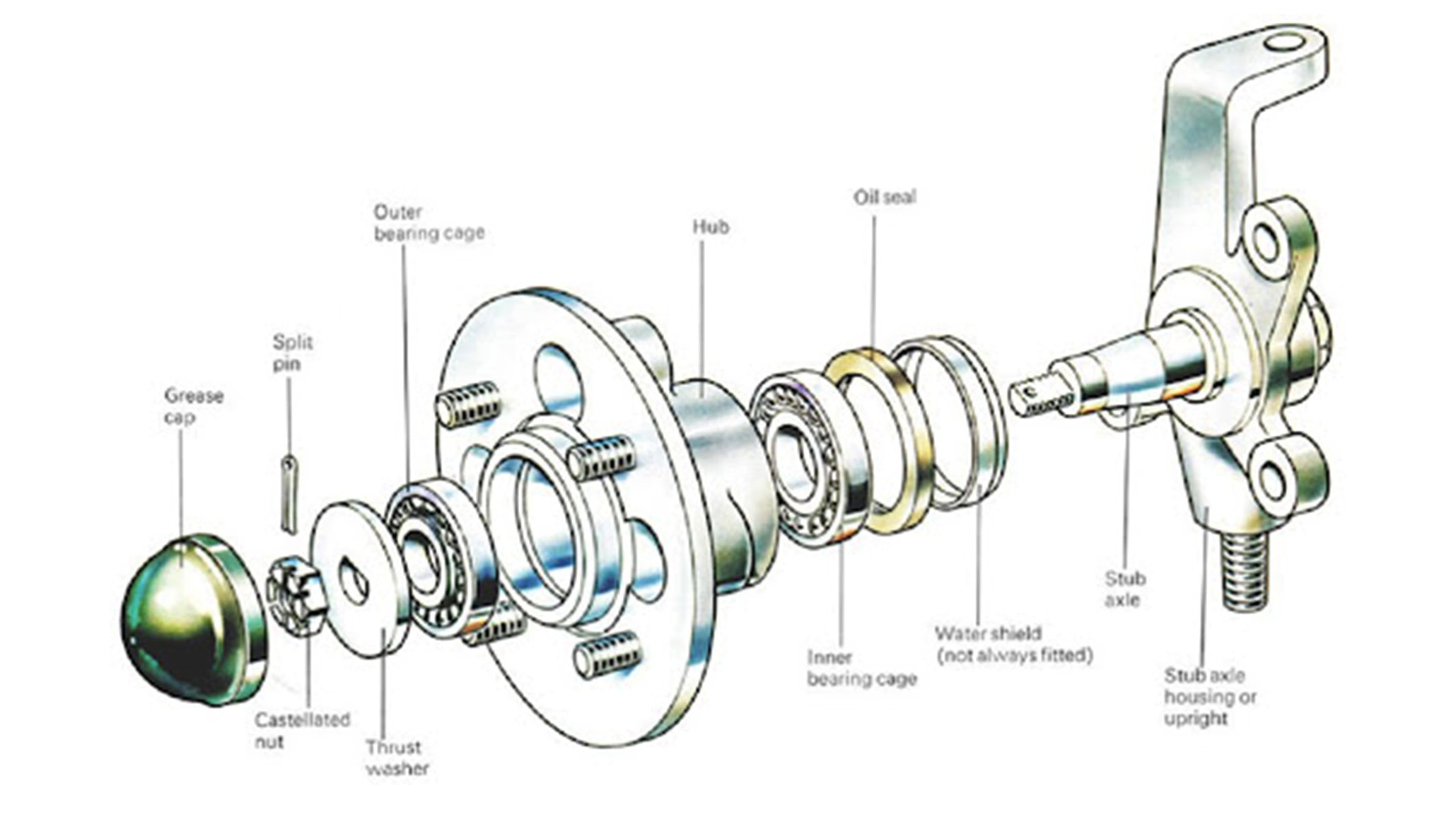Driving With a Grinding Noise: Your Brakes or Bearings?
It’s a sound every motorist dreads hearing—an unexpected scraping or grinding noise when you’re driving your vehicle. There are a few possible reasons why you might hear this, but none of them are good. In almost every case, it means that parts are touching that shouldn’t be touching (at least, not so hard).
But how can you tell where the grinding noise in your vehicle is coming from—and what can you do to prevent or stop it? That’s what we’ve explained below. Keep reading to find out about the most common causes of grinding noises in cars and trucks so you can identify the source of these noises when your vehicle starts making them and replace the appropriate parts.
Two Main Causes of Grinding Noises
The two most common causes of grinding noises while driving are:
- Problems with your wheel hubs or bearings, or
- Problems with your brake pads or rotors
The noises these issues make can sound the same if you don’t know what to pay attention to, so let’s take a closer look at each—including when it’s most likely to happen. That way, you should be able to get a better idea of which issue you’re dealing with when you hear grinding in your own vehicle.

Via Liveabout.com
Signs of Problems with Wheel Hubs or Bearings
Wheel bearings sit inside the hub assembly on each wheel of your vehicle. Their job is to help each wheel of the vehicle turn smoothly while you’re driving.
Sometimes, elements can get inside the hub assembly and cause extra resistance as the wheel bearings are moving, preventing them from effectively reducing friction as your wheels are spinning. Wheel bearings can also fail due to a lack of proper lubrication, as well as simple wear-and-tear over time.
While a grinding noise is likely the first sign of a bad wheel bearing that you’ll notice, it’s not the only one. Worn out wheel bearings can also result in the following issues:
The ABS light turning on: since many hubs in modern vehicles are connected to the ABS systems, a damaged hub may cause the ABS light in your vehicle’s dashboard to activate. In these cases, the entire hub assembly (including bearings) will normally need replacement.

Via Your Mechanic
Signs of Problems with Brake Pads or Rotors
Your braking system consists of brake pads, which are applied to the rotors on your vehicle’s wheels by callipers. When the pads wear down, the callipers can press directly on the rotors themselves, causing a squealing or grinding sound similar to the one worn out bearings cause.
However, issues with brake pads and rotors can also come with a few other signs, which can help you distinguish between them and bearing or hub problems. Here are a few of the most common:
Some newer cars also have an indicator light that only goes on when your brake pads are significantly worn down. If your vehicle has one of these and you notice it turn on, take your car or truck in for a brake inspection as soon as possible.

Via Sun Auto Service
How Long Do Wheel Bearings Last?
The lifespan of a wheel bearing and hub assembly varies based on several factors, of which the vehicle's overall condition and typical operating environment are major factors. However, all things being equal, variance is surprisingly minimal.
For example, across America's top-selling pickups:- F150 wheel bearings generally last 85,000 - 100,000 miles
- Ram 1500 wheel bearings are about the same
- Silverado 1500 wheel bearings generally last 90,000 - 100,000 miles
- Sierra 1500 wheel bearings are about the same
Why Replacing Worn Out Bearings, Hubs, & Brakes is Vital
Once you’ve determined the cause of the grinding sound your vehicle is making, you’ll want to replace the worn out components as soon as you can. While it might be tempting to drive around in a car with worn out bearings or a truck with thin brake pads until your next paycheck, we don’t recommend trying it. That’s because doing so can cause wear and tear to the parts of your vehicle those components are meant to protect.
Driving with worn out bearings can eventually lead to problems with your drive shaft—and by proxy, your transmission. Buying replacement bearings for most vehicles is fairly inexpensive, but transmission replacement often costs around $5000. You do the math, and tell us what option is actually better for your bank account!
It’s the same when it comes to brakes—replacing your rotors usually costs hundreds of dollars more than simply replacing your pads. You can normally replace your pads for less than $200, but you’ll pay at least that much again for new rotors as well.
And no, before you ask—you can’t just keep braking on your rotors and then replacing them. Those longer stopping distances put you and everyone else on the road at risk—and it will wear down other parts of your braking system more quickly, too.
The moral of the story? Learn to properly identify and diagnose the grinding sounds your vehicle makes so you can order the right replacement parts and take care of the problem before it gets worse!




